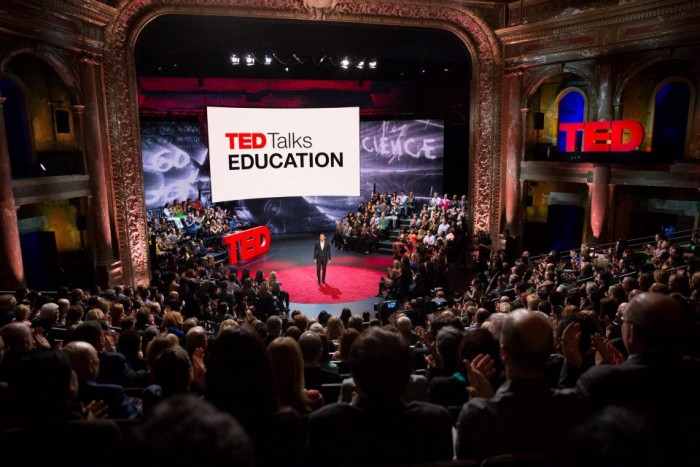
If you’ve never seen a TED Talk, you’re really missing out on something amazing. These talks are prepared every year and given to audiences at events that happen all over the world. The Sapling Foundation is the organization that owns and controls the talks and their slogan, “Ideas Worth Spreading”, has become something of an international sensation.
The best ones tend to be educational in nature and are perfect for downloading for your personal (non-commercial) use – these videos can be watched over and over again and you’ll never tire of them. If you want them to play them on your mobile device (and you should), you can use something like YTD. It will convert just about any video to a format optimal for your device in a few clicks. Just remember to respect intellectual property rights in determining whether you may download (record) and how you may use downloaded material.
But, which videos should you choose? Start with these.
Alison Gopnik: What Do Babies Think?
Alison makes some interesting observations in her talk. Namely, that toddlers learn the preferences of other people before they learn to walk and talk properly. She learned this by conducting an experiment with one of her students that involved a bunch of little tikes.
The researcher would sit with toddlers at a table with two bowls. One bowl contained raw broccoli and the other contained goldfish crackers. All of the babies preferred the crackers. The researchers would then take turns eating the broccoli and then the crackers. About 50 percent of the time, they would say that they preferred the crackers. The other 50 percent of the time, they would simply show how much they love the broccoli. They would then put their hand out and ask for some more.
What they found was that, at 15 months, the babies would stare at the researchers for a bit and then hand her the crackers regardless of the researchers’ preferences. But, at 18 months, the child would give broccoli to broccoli-loving researchers and crackers to cracker-loving researchers. This means that, by a year and a half, babies understand the idea of preference. Interesting, right?
Ken Robinson: How Schools Kill Creativity
In this engaging talk, Robinson shows how children aren’t naturally afraid of getting things wrong of looking foolish. They learn this behavior from their teachers. It’s a stunning talk on how those in charge of teaching our children could be doing more harm than good, and they could be instilling a sense of fear in the fearless. Likewise, they could be stunting creativity when they should be encouraging it.
Salman Khan: Let’s Use Video To Reinvent Education
Salman explains how he created the Khan Academy – one of the largest and most popular free online education sites in the world.
Tyler Dewitt: Hey Science Teachers – Make It Fun
Dewitt is a science teacher. He found that he couldn’t get his class to enjoy learning. The problem? The textbook. So, he ditched it and made learning fun again.
Ken Robinson: Changing Education Paradigms
Robinson gives another stunning talk about how to improve education in the classroom. This time, he uses animation to bring topics to life and also to get you think about how education can be improved in schools.
Sugata Mitra: Build a School In The Cloud
This talk focuses on how to build a school in the cloud. Instead of a physical classroom, Mitra envisions the schools of the future as virtual classrooms. In India, this is already a partial reality, where some children are engaged in a learning lab. They can explore and learn from each other using resources and mentoring that is cloud-based. The best and the brightest teachers win out, and education becomes decentralized.
Mae Jemison: Teach Arts and Sciences Together
Jemison believes we should teach both art and science together. She’s an astronaut, doctor, art collector, and a dancer. She calls on educators in this talk to uproot the status quo and create more lives as dynamic as hers.
Shukla Bose: Teaching One Child At A Time
Shulka Bose has a vision for India – one where poverty can be overcome by looking at each child as an individual. She tells the story of her Parikrma Humanity Foundation – an attempt to raise poor Indian children out of poverty.
Shane Koyczan: To This Day…For the Bullied and Beautiful
Koyczan tells a personal story about what it’s like to be young and fabulous. It’s an interesting way to demonstrate how children learn and what challenges they face – the contradictions given to them by adults and the frustrations that most children still go through today.
Charles Leadbeater: Education In The Slums
Charles Leadbeater tells a story of disruptive schools that are teaching kids what western schools are not. This, he argues, is what all schools need to become. It’s not a matter of “if.”
David Mitchell is his district’s technology officer. Constantly combing the tech industry for devices and resources, he loves blogging about his discoveries and helping educators learn and implement useful tech strategies in the classroom.


